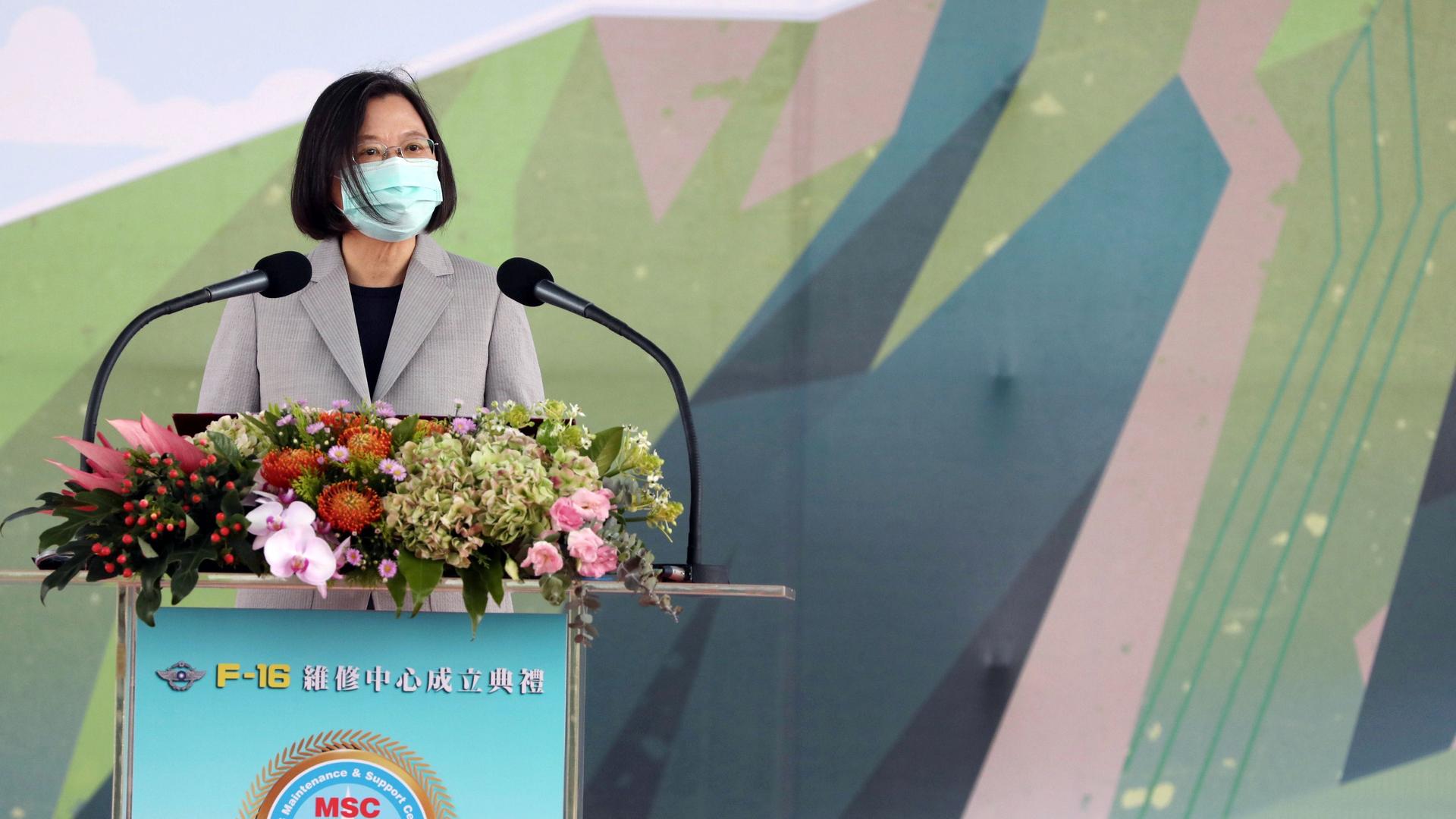Four years ago, then-president-elect Donald Trump broke with decades of US diplomatic tradition simply by picking up the phone. That’s because the person calling was Tsai Ing-wen, Taiwan’s first female president.
By speaking with her, Trump seemed to challenge the long-standing US diplomatic policy of officially regarding Taiwan as part of China. No other US president or president-elect is believed to have spoken directly with a Taiwanese leader since 1979.
Related: Amid increasing US-China tensions, humor is serious business
Trump’s move was the beginning of a major shift that has increased ties between the US and Taiwan, leading to threatening countermoves by China and amplified tensions in the South China Sea.
With human rights activists jailed in Hong Kong, fears are growing that China will next set its sights on Taiwan, a fledgling democracy seeking independence. US policy, as set by the next president, may play a defining role.
The Trump administration has maintained that it hasn’t formally changed US policy toward Taiwan, but it has stepped up arms sales to the country, and increased the pace of high-level visits by US officials. In early August, Health and Human Services Secretary Alex Azar led a delegation to Taipei, the Taiwanese capital.
“We could not be prouder that Taiwan is one of the US’s 10 largest trading partners.”
“We could not be prouder that Taiwan is one of the US’s 10 largest trading partners,” Azar said, announcing a new economic dialogue with Taiwan focused on technology and health care.
It was a dramatic step toward closer US-Taiwan relations, and not long after, Taiwanese President Tsai — who had just been reelected — gave a speech demanding Beijing recognize Taiwan as a self-governed democracy.
Related: Trump campaign courts voters in swing states with tough stance on Venezuela
“The right of people to choose how they are governed is [a] universal aspiration and inalienable right,” she said. “As president, it is incumbent on me to protect these rights and to make certain they will be passed down to future generations.”
China responded by conducting large-scale military drills off of Taiwan’s southwestern coast. The US made another move, sending Under Secretary of State Keith Krach to visit Taiwan. China responded again by flying jets into Taiwanese airspace.
“That caused the Taiwan Defense Department to actually give a press conference and say we reserve the right to respond with our own military,” said Kelsey Broderick, an analyst and Taiwan expert with the Eurasia Group. “That’s new.”
Despite China’s hostile moves, Broderick said they could have been much worse. Many are surprised that China hasn’t hit back harder.
“In my conversations with former Obama officials, one of the things that they have mentioned is that they thought that China would react much more strongly to some of the things the Trump administration has done, and China didn’t,” she said.
Related: COVID-19 in the West Wing means instability amid fraught election, analyst says
To Broderick, that means China might be willing to take even more pressure on Taiwan. And she said that’s what might happen if Trump is reelected. Broderick says that if former Vice President Joe Biden is elected, though, Democrats may play it safe. Historically, they’ve promoted dialogue with China on Taiwan.
“They’re probably going to in some ways kind of walk back their relationship a little bit. I think that we will see much less high-profile efforts to be close to Taiwan.”
“They’re probably going to in some ways kind of walk back their relationship a little bit,” Broderick said. “I think that we will see much less high-profile efforts to be close to Taiwan.”
Others though, point to the long-standing bipartisan support for Taiwan, and say Biden would stay the course that the Trump administration has charted.
Related: Explainer: Both candidates’ platforms underline US struggle to confront China
“There’s definitely a lot of uncertainty over the elections, but whatever happens, we don’t believe things will actually change a lot,” said Wellington Tzou, president of the Taiwanese American Citizens League. Tzou added that the Democratic platform under Biden omits any mention of a “One China” policy — which recognizes Taiwan as part of China — for the first time in years.
But if China increases aggression toward Taiwan, the US will face more pressure to respond, regardless of who is president, said Russell Hsiao of the Global Taiwan Institute.
“Beijing has to recognize that the more that it pressures Taipei, the more that it will elicit greater calls and support for Taiwan here in the US,” he said.
Hsiao said there’s now a growing discussion about whether Trump was right four years ago, and it’s time for the US to be clear about its position on Taiwan.
Our coverage reaches millions each week, but only a small fraction of listeners contribute to sustain our program. We still need 224 more people to donate $100 or $10/monthly to unlock our $67,000 match. Will you help us get there today?
